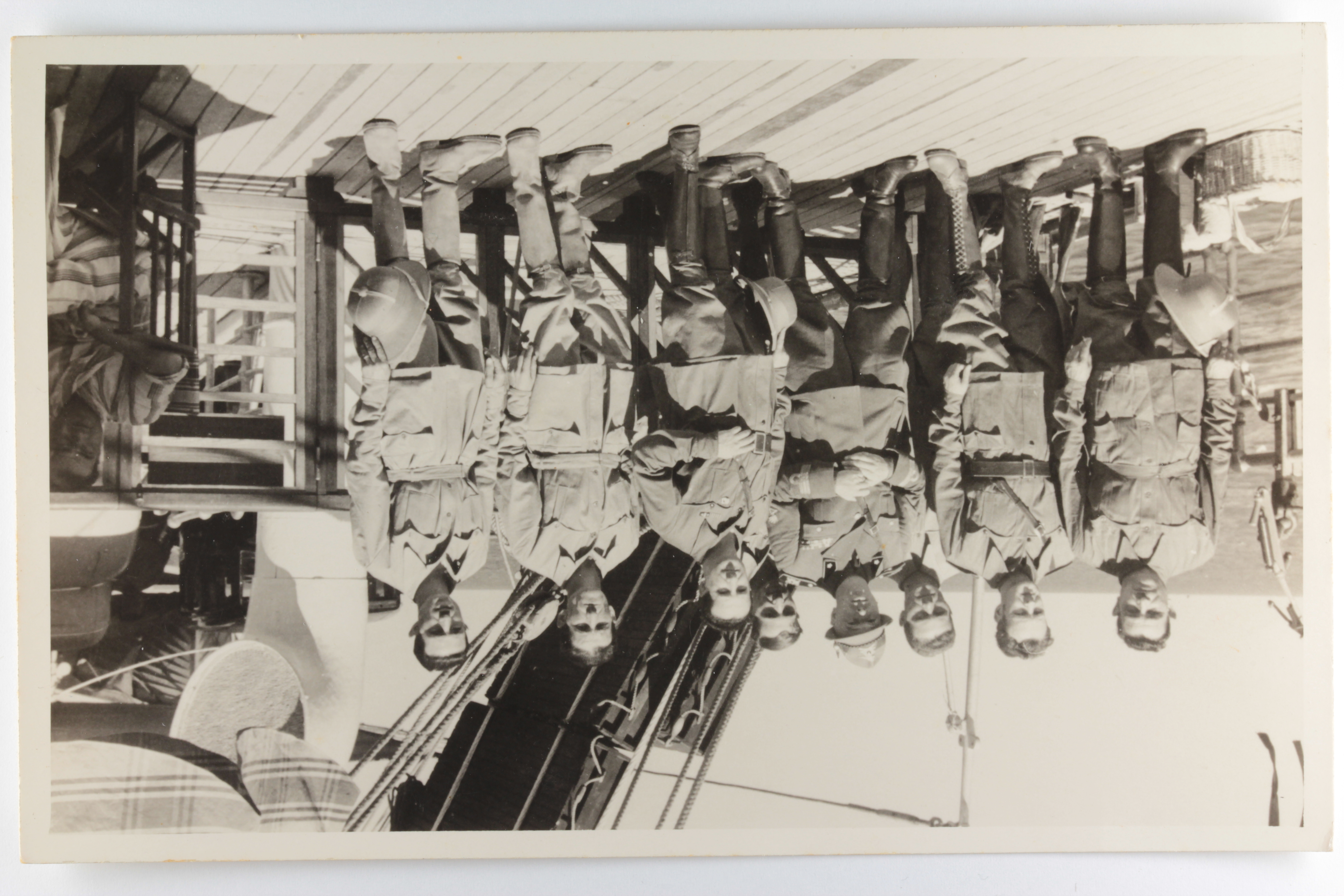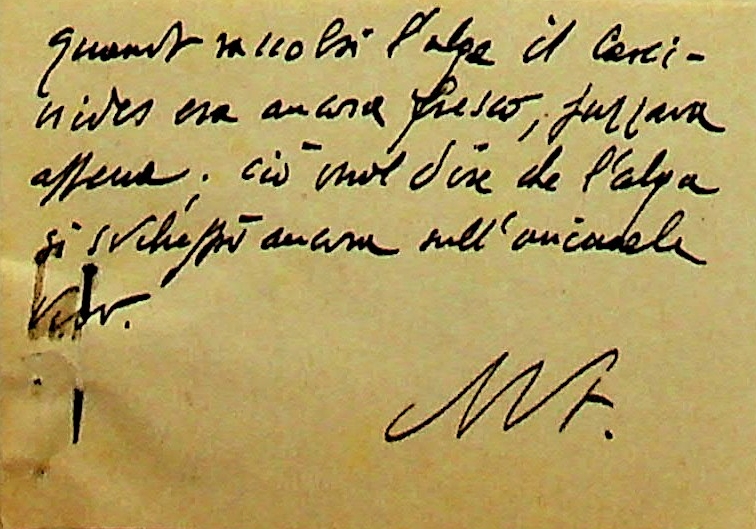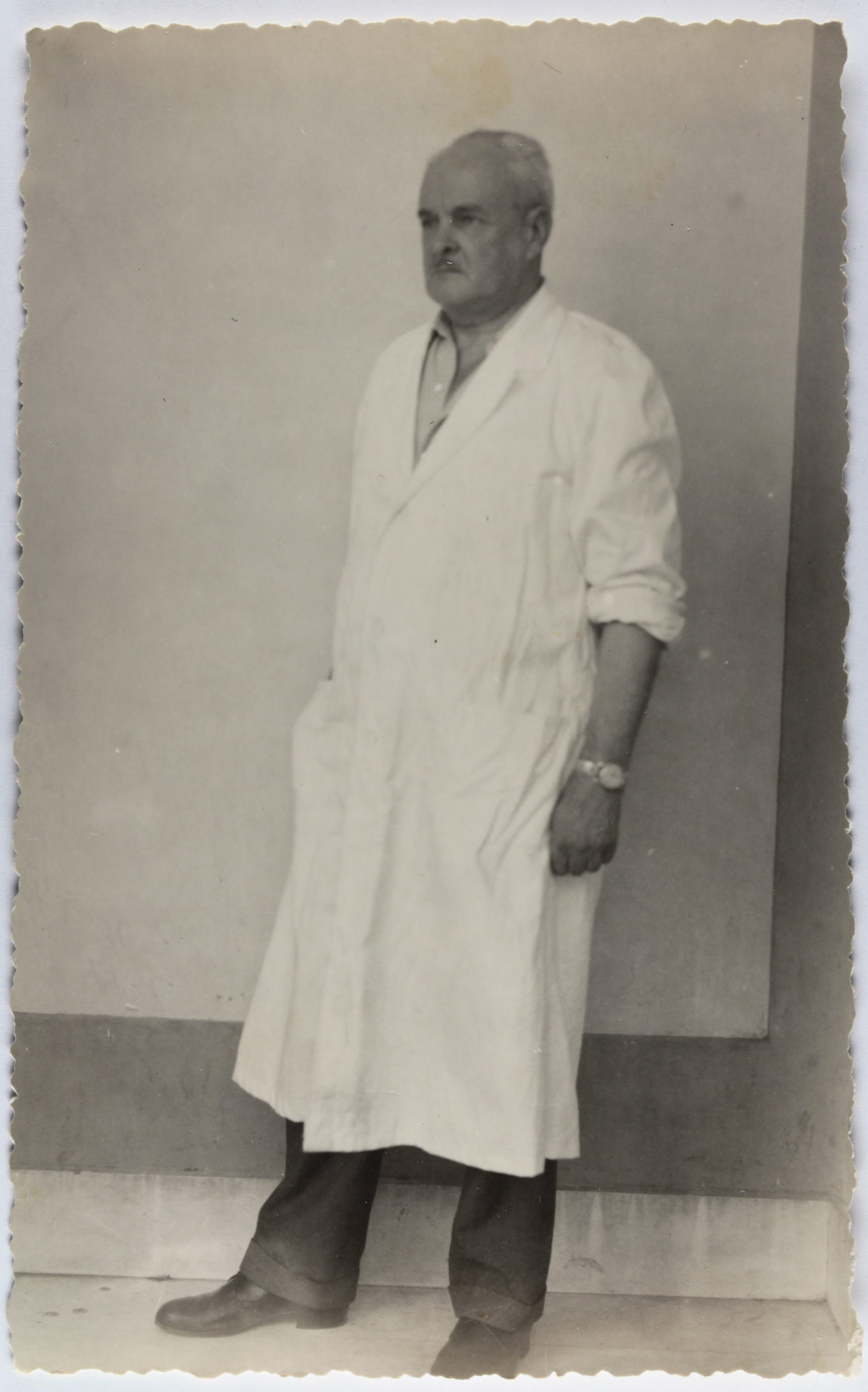Aristocle Vatova
Aristocle Vatova was born in 1897 in Koper, which was then part of the Austro-Hungarian Empire. He studied Philosophy at the Universities of Graz and Vienna, and later graduated in Natural Sciences in Turin in 1919 with a thesis in botany.
He immediately dedicated himself to teaching various subjects, from geography to mathematics, at several schools in Istria. At the same time, he began to collect and identify plants from the Istrian flora, creating the Herbarium Vatuense, which over time grew to include about 5,000 samples of algae and both marine and terrestrial flowering plants.
In 1924, he began working at the Institute of Marine Biology in Rovinj, initially as a technical assistant and later as the director. He remained there for about twenty years, conducting research in the Upper Adriatic, the results of which he presented in his early publications, such as in the 'Compendio della flora e della fauna del Mare Adriatico presso Rovigno', which included the geographical distribution of benthic species (1928). He also worked hard to reorganize the library and the small museum of the Institute, contributing his collections to enhance its holdings.

Ichthyological mission of the steamboat Francesco Crispi in the Red Sea (1937); Aristocle Vatova is the second from the left (from the family archive).
He participated in numerous research expeditions, primarily in the Adriatic Sea. In particular, he focused on the study of algae as part of the monographic work dedicated to the Lagoon of Venice, which was entrusted to him by the International Commission for the Scientific Exploration of the Mediterranean. First, he planned the research, and during the years 1930-32, he collected samples and identified part of the material. After the meticulous revision by Victor Schiffner, he prepared the algarium, which he later donated to the Natural History Museum of the lagoon city, where it is still preserved today. Finally, he drafted the text for the monograph 'La laguna di Venezia' (1938): first the systematic part, translating and organizing Schiffner's notes, and then the general section dedicated to the ecology and distribution of algae in the lagoon.

Autograph annotation of Aristocle Vatova attached to sheet 76 (MSNVE-25994)
Once his work was completed, he was able to focus on another important research expedition: in 1937-38, he directed an expedition in the colonies of Italian East Africa, between Somalia and Eritrea, during which he explored rivers and lakes, collecting a large amount of hydrographic data as well as zoological and botanical samples.
With the onset of the Second World War, he had to leave Istria and moved to Venice, where he found employment at the Institute of Adriatic Studies, later the Institute of Marine Biology. The collections from Rovinj also arrived in the lagoon city, which, after various changes of location, would find a permanent home only many years later: the zoological specimens would be transferred to the Hydrobiological Station of Chioggia in 1968, and the Herbarium Vatuense would move to the Central Italian Herbarium in Florence in 1973.

Aristocle Vatova when he was
rthe head of the Istituto Sperimentale
Talassografico of Taranto, Puglia (1962)
(from the family archive)
Despite the move, he periodically returned to Venice, and in the early 1970s, after retiring, he settled permanently in the lagoon city; he never stopped working and continued to visit his office at the Institute until his death, which occurred in 1992.
Aristocle Vatova is described by those who knew him as a reserved and taciturn man, often brusque in manner but with a kind and sincere spirit; he had a high moral standing, was meticulous and tenacious, and viewed his work as a service to science and society. His extensive scientific output, resulting from nearly seventy years of uninterrupted activity, spans various fields: zoology, primarily benthic fauna; botany, particularly algology; hydrography, hydrology, the physics and chemistry of waters; primary productivity; and fishing valleys. He also wrote about the effects of pollution and particularly intense weather-climatic events on the environment. Finally, in his later years, unable to work in the field, he published a series of Malacological Notes on the Mediterranean dedicated to uncommon marine gastropod species found in our seas.